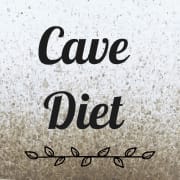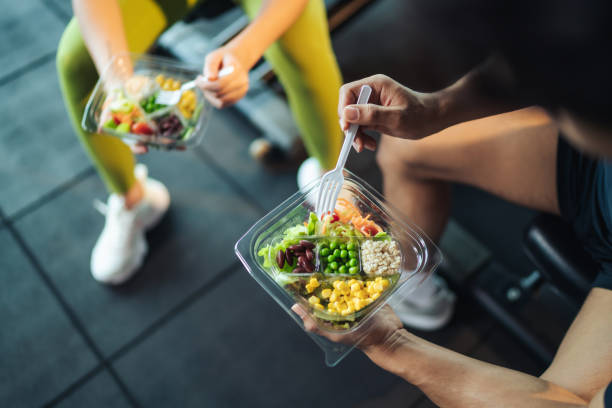Whether you’re an athlete training for a competition, a fitness enthusiast who regularly hits the gym, or someone just looking to improve their overall health, your diet plays a vital role in your performance. A fitness regimen is designed to support your body’s increased energy needs, improve muscle recovery, and fuel you for better performance. It’s not about eating certain foods, it’s about eating healthy. Let’s explore what a fitness regimen entails and how you can optimize your nutrition for optimal results.
What is a fitness diet?
A fitness diet is a balanced, nutrient-rich plan that supports your physical activity. Unlike general diets that focus on weight loss or maintenance, a fitness diet is specifically designed to meet the demands of increased physical activity. It helps fuel your workouts, promotes muscle growth, and speeds up recovery time. A proper diet can also increase your energy, improve your endurance, and help you reach your fitness goals faster. effectively.
The key to a successful fitness regimen is getting the right balance of macronutrients (protein, carbohydrates, and fats) and micronutrients (vitamins and minerals) to support your activity levels and recovery needs.
The main components of a fitness diet
1. Protein: Building Blocks of Muscle
Protein is an essential macronutrient for fitness. It helps repair and build muscle tissue after exercise and is essential for muscle recovery. Whether you’re lifting weights, running, or doing high-intensity interval training (HIIT), protein plays a vital role in helping your muscles recover and grow.
Good sources of protein:
Lean meat (chicken, turkey, lean beef)
Fish (salmon, tuna, cod)
Eggs
Dairy (Greek yogurt, 4 cheese,
) peas, shakes
4 or powders (whey, pea protein, etc.)
2. Carbohydrates: Your Body’s Source of Energy
Carbohydrates are your body’s main source of energy, especially during intense physical activity. They are converted into glucose, which your muscles use for fuel. Consuming the right amount of carbohydrates ensures that you have the energy you need to complete your workouts without feeling tired.
Good sources of carbohydrates:
Whole grains (rice, oats, quinoa, whole grain bread)
Fruits (bananas, berries, apples, oranges)
Vegetables (4 sweet potatoes, 4 carrots, chickpeas)
How much do you need?
Aim for about 3 to 7 grams of carbohydrates per pound of body weight, depending on the intensity of your activity. If you train intensely or for a long time, you may need to increase this amount.
3. Healthy Fats: Supporting Hormones and Recovery
Healthy fats are essential for hormone regulation, joint health, and overall recovery. Fats also help you feel full and satisfied, which can prevent overeating. Although fats are high in calories, they are an important part of a fitness diet because they help reduce inflammation and support long-term energy.
Good Sources of Healthy Fats:
- Avocados
- Nuts and seeds (almonds, chia seeds, flaxseeds, walnuts)
- Olive oil and coconut oil
- Fatty fish (salmon, mackerel, sardines)
- Nut butters (peanut butter, almond butter)
How much do you need?
- Fats should make up about 20-35% of your total daily calorie intake. This depends on your overall calorie needs and training intensity.
4. Hydration: Stay Refreshed and Energized
Water is one of the most important, yet often overlooked, aspects of a fitness diet. Hydration is essential for maintaining your energy levels, supporting your metabolism, and preventing cramps or dehydration during exercise. During intense workouts or long-duration activities, you lose fluids through sweat, so it’s crucial to replenish them.
How much do you need?
- Aim for at least 8 cups (64 ounces) of water per day, but this may need to be increased depending on your activity level, climate, and individual needs.
- Consider hydrating with electrolyte-rich drinks or coconut water during long or intense workouts to replenish lost minerals.
5. Vitamins and Minerals: Supporting Overall Health
Micronutrients like vitamins and minerals are essential for muscle function, bone health, immune function, and recovery. A balanced diet rich in fruits, vegetables, and whole grains will provide your body with the essential vitamins and minerals it needs.
Important Vitamins and Minerals for Fitness:
- Vitamin D: Supports bone health and immune function.
- Magnesium: Helps with muscle function and recovery.
Pre- and Post-Workout Nutrition
What you eat before and after a workout is crucial for performance and recovery. Here’s how to optimize your nutrition around exercise:
Pre-Workout Nutrition
Eating the right foods before your workout helps fuel your body and gives you the energy you need to power through. Ideally, consume a balanced meal 1-2 hours before exercising, rich in complex carbs, moderate protein, and healthy fats.
Pre-Workout Meal Ideas:
- A banana with peanut butter
- A whole-grain toast with avocado and eggs
- Oats with chia seeds, almond butter, and berries
Post-Workout Nutrition
After exercise, your muscles need protein to repair and carbohydrates to replenish glycogen stores (energy). Aim to eat a meal or snack within 30-60 minutes post-workout for optimal recovery.
Post-Workout Meal Ideas:
- Grilled chicken with quinoa and roasted vegetables
- A protein smoothie with fruits, spinach, and protein powder
- Greek yogurt with honey, granola, and berries
Example Fitness Diet Plan
Here’s a simple day of eating for a balanced fitness diet:
- Breakfast: Scrambled eggs with spinach and tomatoes, whole-grain toast, and a side of berries.
- Snack: A protein shake or a small apple with peanut butter.
- Evening Snack: A handful of walnuts or a small bowl of cottage cheese with flaxseeds.
Conclusion: Your Diet, Your Performance
A fitness diet is about fueling your body with the nutrients it needs to perform at its best. By prioritizing protein for muscle recovery, carbohydrates for energy, healthy fats for recovery and overall health, and staying hydrated, you’ll give your body the tools it needs to succeed. Remember, consistency is key when it comes to diet and exercise.
A fitness diet isn’t a one-size-fits-all approach, so feel free to tweak it to match your individual needs, preferences, and goals. With the right nutrition and the right attitude, you can fuel your fitness journey and achieve your performance goals, all while feeling energized, strong, and healthy.




